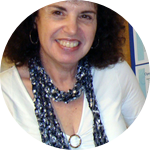About This Project
We study treatment outcomes at Gould Farm, a residential program for people with mental illness, and have found that psychiatric symptoms and overall functioning improve significantly after treatment. Now, we wish to expand our methods of measuring recovery. We will use focus groups to study patients'/families' opinions about the meaningful indicators of progress to them, beyond symptom improvement. This data will help us design new state-of-the-art interview questions for the ongoing research.
Ask the Scientists
Join The DiscussionWhat is the context of this research?
Since 2000, we have studied outcomes of a unique, farm-based residential treatment program in Massachusetts, Gould Farm(www.gouldfarm.org). Our research shows that patients’ psychiatric symptoms decrease significantly after treatment. But full recovery involves more than just fewer symptoms; it also involves resuming work/school, regaining a social life, finding a good living situation, etc. “Best practices” in treatment now fully include patients in shared decision making with providers; “best practices” in research should also include them. We will move this research to a new level by studying the ideas of those living with mental illness about the markers of progress that are most meaningful to them. Better measurement means research, which in turn improves treatment for mental illness.
What is the significance of this project?
Research on treatment outcomes in residential settings, especially research that includes post-treatment followup, is rare but very important. Good research data helps design more effective interventions, thus improving peoples’ lives and reducing the personal and public health burden of serious mental illness. Including people with mental illness and their families as not just the subjects of research, but as informed partners in the research process, breaks new ground. This funding will allow us to better answer the larger question, “How does this treatment work for people with major mental illness?” and will increase the validity and the real-life usefulness of the findings. Our results can then be shared with other residential treatment programs for use in their research as well.
What are the goals of the project?
Over sixth months, our research team will conduct separate focus groups of current and past patients, and their families. The focus groups will be done at Gould Farm and will take 1 hour. We will ask the participants to discuss what the most meaningful indicators of recovery progress are to them. We will record, transcribe and analyze the data. We will also obtain a one-day expert consultation on state-of-the art measures in recovery-focused research. Based on knowledge gained from these combined sources, we will revise and expand the research interview questions and protocol. This will allow us to better measure progress using our structured interviews with patients before treatment, after treatment, and in 6-month, 18-month, and 36-month follow-up phone interviews.
Budget
The funds raised will allow us to: 1) provide a modest incentive for patients and their families (who will travel to Gould Farm) for participation in the focus groups. No funds are being sought for the researchers' time; Professor Heatherington volunteers her expertise to this project, and 2) cover the travel expenses and consultation fee for bringing in a national-level expert on the latest recovery-focused measures and strategies for a one-day research consultation. The findings of this branch of our research will directly impact the success of the ongoing outcomes research because it will help us to develop the most valid and efficient measures of treatment progress and long term recovery. Such measures will allow better answers to questions about what factors predict treatment gains and continued progress in the years following treatment.
Endorsed by
Meet the Team
Team Bio
This project is a new branch of an ongoing treatment outcomes study that is directed by Professor Laurie Heatherington, assisted by her students in the psychology department at Williams College and with the cooperation and full collaboration of the Gould Farm staff. It has resulted in yearly research outcome reports and presentations at professional conferences; the results to date are now being prepared for publication.
Laurie Heatherington
Laurie Heatherington earned her BA from Miami University (Ohio) andPh.D. in clinical psychology from the University of Connecticut. She is Professor of Psychology at Williams College, Williamstown, Massachusetts. There she teaches and does research on processes of change in family therapy, the therapeutic alliance, and treatment outcomes in community mental health and residential treatment, with recent work in global mental health. She has published numerous journal articles and chapters, and co-authored two books. With collaborator Myrna Friedlander, she received the 2010 Distinguished Contribution to Family Systems Research Award by the American Family Therapy Academy. She has also served as president of the North American Society for Psychotherapy Research.
Ellen Finch
Ellen Finch is a psychology major completing her senior year at Williams College. She is from Concord, NH and is looking forward to pursuing a degree is clinical psychology. Ellen has past experience with research on Gould Farm as well as post-partum depression. After graduating, she plans to work as a research coordinator is a psychology lab.
Project Backers
- 44Backers
- 139%Funded
- $2,859Total Donations
- $64.98Average Donation




